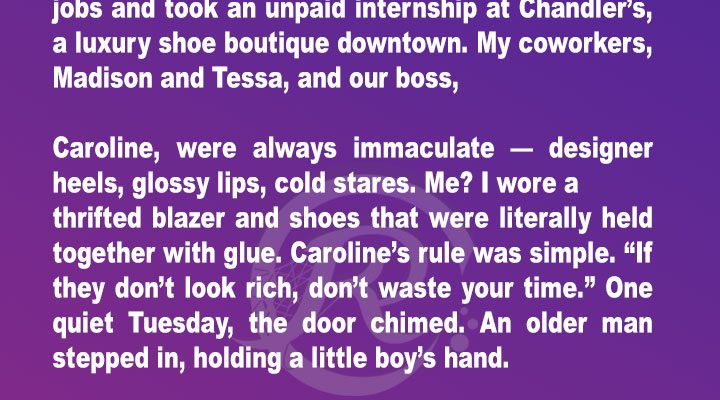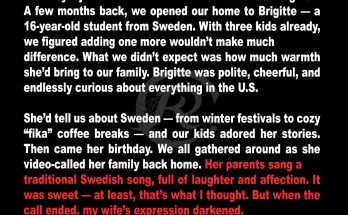I’m Emily, and I thought I was just helping a tired old man find a pair of shoes, but the truth about who he really was left the whole store speechless and changed my future forever.
When I got into college, I thought things were finally starting to fall into place.
I’d spent the last two years clawing my way through grief and debt. My parents died in a car accident just after I graduated high school, and what was supposed to be a new beginning turned into a tragedy I never saw coming. My aunt, who was meant to be my guardian, took the small inheritance they left behind and disappeared before I even started orientation week.
So yes, I was on my own.
I rented a tiny studio the size of a closet above a laundromat and survived on gas station ramen and half-price bagels from the café where I worked weekends. I juggled two part-time jobs and a full class load, with sleep turning into some kind of luxury I couldn’t afford. Most nights, I crashed face-first into my textbook and woke up five minutes before my alarm.
That was my reality, at least until I landed an internship at Chandler’s Fine Footwear.
The name sounded elegant, like the kind of boutique you’d see in an old black-and-white movie, with gloved hands and gleaming floors. But the truth was far less charming. The store looked polished, with soft lighting and leather-scented air fresheners, but underneath all that shine, it was just another snake pit in high heels.
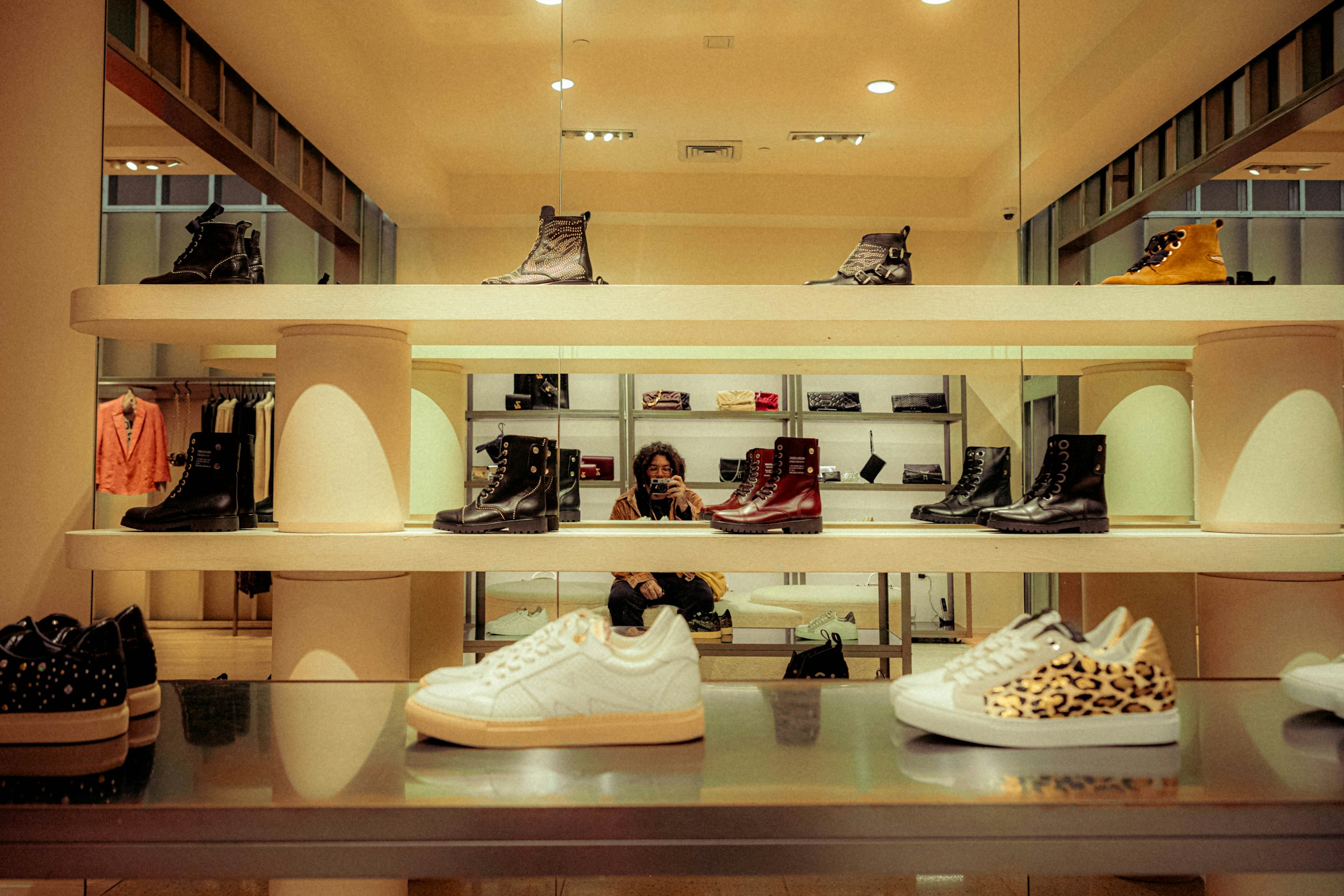
A display of footwear in a shoe store | Source: Unsplash
My coworkers, Madison and Tessa, were in their early twenties, model-gorgeous with Instagram filters practically built into their faces. Then there was Caroline, our thirty-something store manager, who wore stilettos like she was born in them and had this terrifyingly perfect blowout every single day. They spoke in whispers when you walked by and smiled like everything you did was mildly offensive.
Meanwhile, I walked in on my first day wearing a thrifted blazer, a dress shirt that barely fit, and loafers that were literally held together with glue and prayers.
Madison gave me one long look, her eyes flicking to my sleeves.
“Cute jacket,” she said, tossing her hair. “My grandma has that one.”
Tessa smirked, not even trying to hide her amusement. “Well, at least she’ll match the elderly customers.”
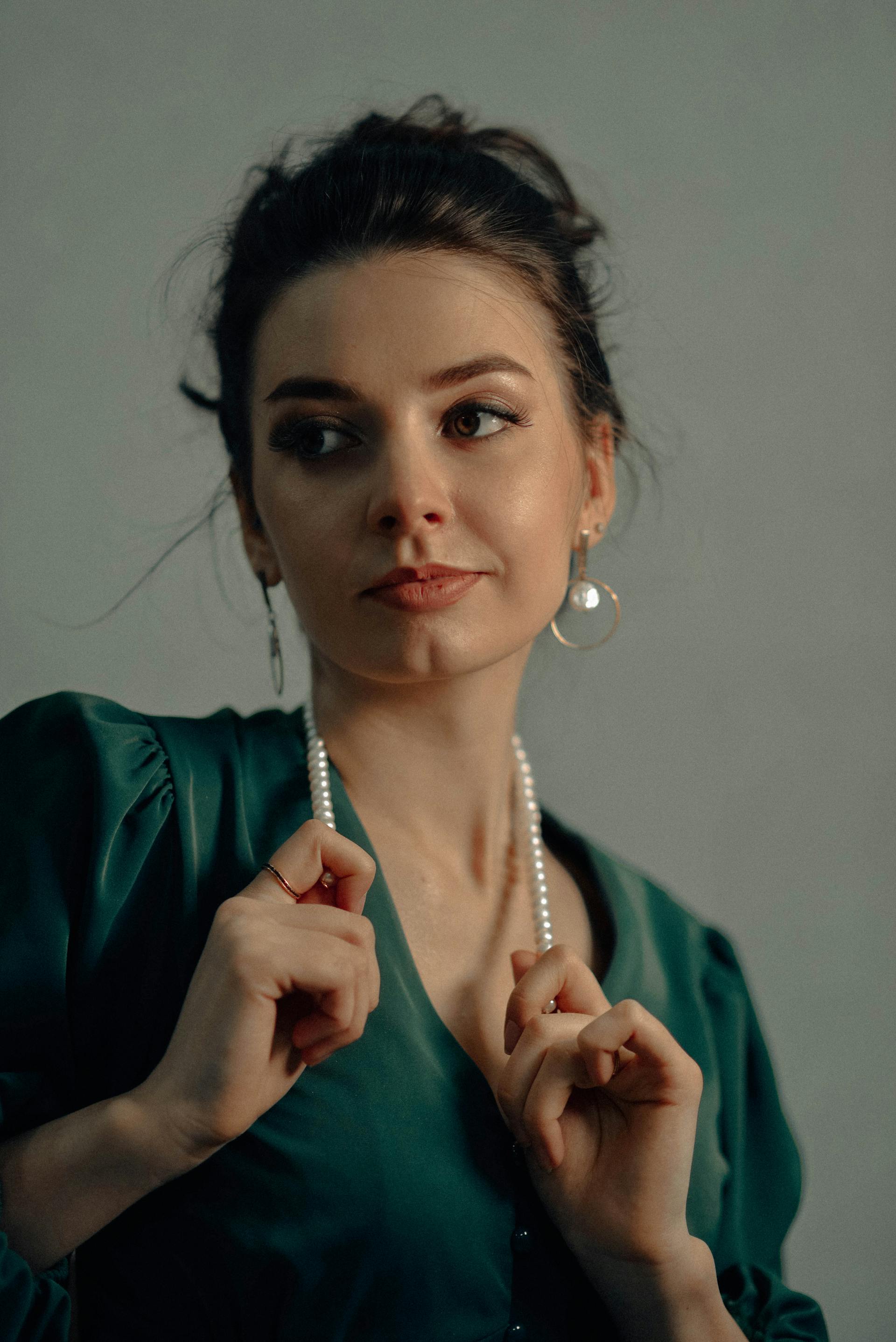
A young woman looking at someone | Source: Pexels
I smiled politely and pretended not to care, but the heat crawling up my neck said otherwise.
Chandler’s wasn’t just about shoes. It was about the kind of people who could afford shoes that cost more than their rent. Every day, men in tailored suits and women in silk scarves walked in like they were gliding on clouds. Some of them wouldn’t even look you in the eye. Others snapped their fingers like they were calling a dog.
Caroline drilled into us on day one: “Focus on buyers, not browsers.”
Translation: judge everyone the second they walk in.
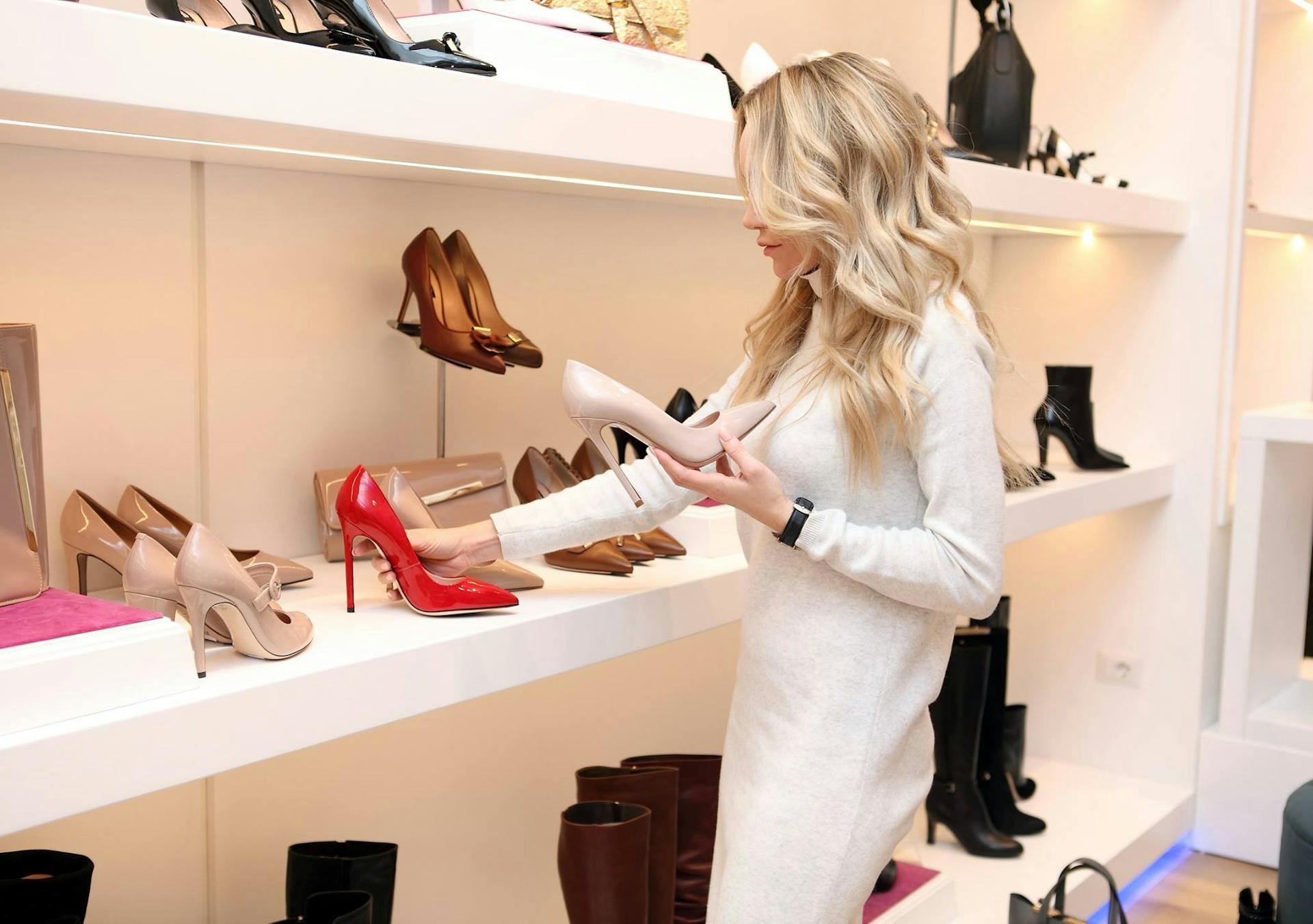
A female customer in a shoe store | Source: Pexels
“If someone doesn’t look rich,” she said, crossing her arms, “don’t waste your time.”
It was a quiet Tuesday. The store smelled like new leather and overpriced perfume. Light jazz played through the speakers, the AC hummed, and everything gleamed like a showroom.
That’s when the bell above the door rang.
An older man walked in, holding the hand of a young boy who clung to his side. The man looked to be around 70, with deep tan lines on his arms, gray hair tucked under a worn baseball cap, and sandals that had clearly seen better days.
He wore faded cargo shorts and a wrinkled T-shirt, and his hands were rough and stained with grease, as if he had just come from working in a garage. The boy, probably seven or eight years old, held a toy truck in one hand and had a smudge of dirt across his cheek.
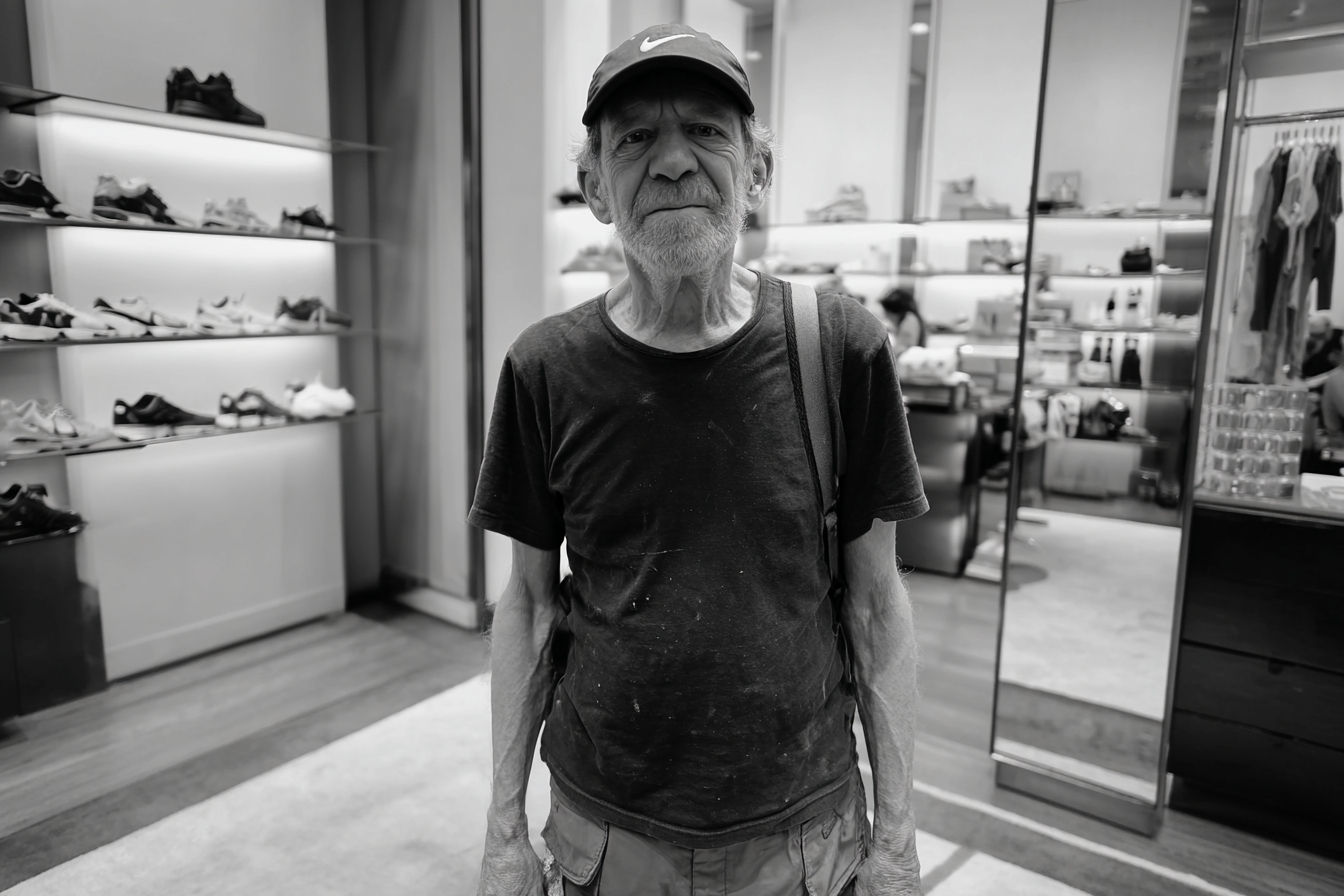
Grayscale photo of an elderly man standing in a shoe store | Source: Midjourney
Every head turned.
Madison wrinkled her nose and leaned in toward Tessa. “Ugh. I can smell poverty in the air.”
Tessa giggled behind her hand. “Did he wander in from a construction site?”
Caroline folded her arms and stared them down. “Stay put. He’s clearly in the wrong store.”
The man looked around, smiling gently. “Afternoon,” he said with a nod. “Do you mind if we take a look?”
Caroline walked over slowly, her voice sickly sweet. “Sir, these shoes start at nine hundred dollars.”
He didn’t flinch. “I figured,” he replied politely.
The boy’s eyes lit up as he spotted the display case filled with gleaming leather. “Grandpa, look! They shine!”
The man chuckled and leaned down. “They sure do, buddy.”
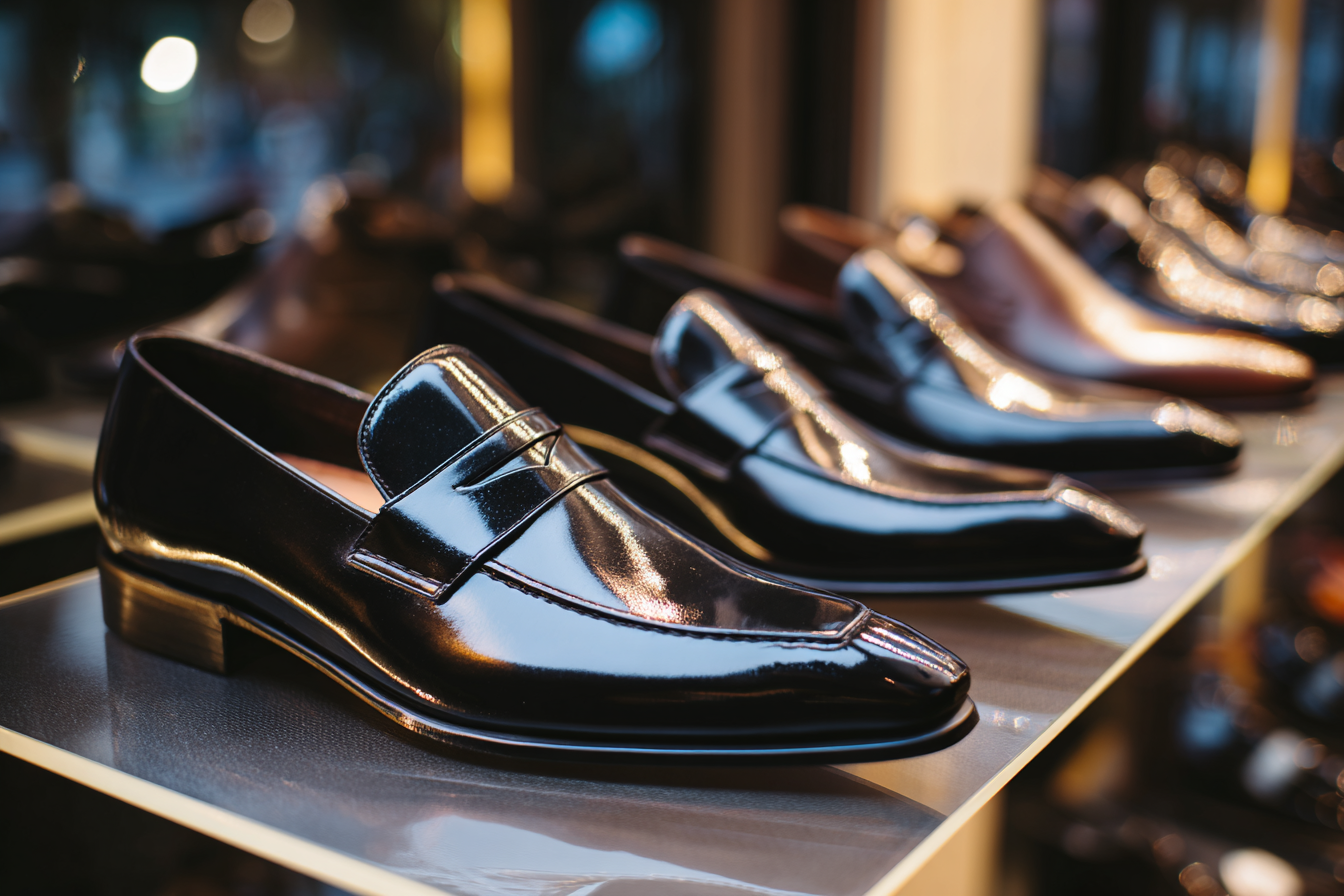
Men’s loafers on display in a shoe store | Source: Midjourney
No one moved.
So I did.
I stepped forward, past Caroline, and gave them both a smile. “Welcome to Chandler’s,” I said. “Can I help you find a size?”
The man blinked like he didn’t expect kindness. “That’d be nice, miss. Eleven and a half, if you’ve got it.”
Behind me, Madison let out a snort. “She’s actually helping him?”
I ignored her.
I headed to the back and picked out a pair of our sleekest black loafers. They were made from Italian leather and stitched by hand. It was probably the most expensive pair on the shelf, but also the most comfortable. If he was going to try anything, it might as well be the best.
He eased into the seat and carefully slipped one shoe on, his movements slow and respectful, like the leather might break under pressure.
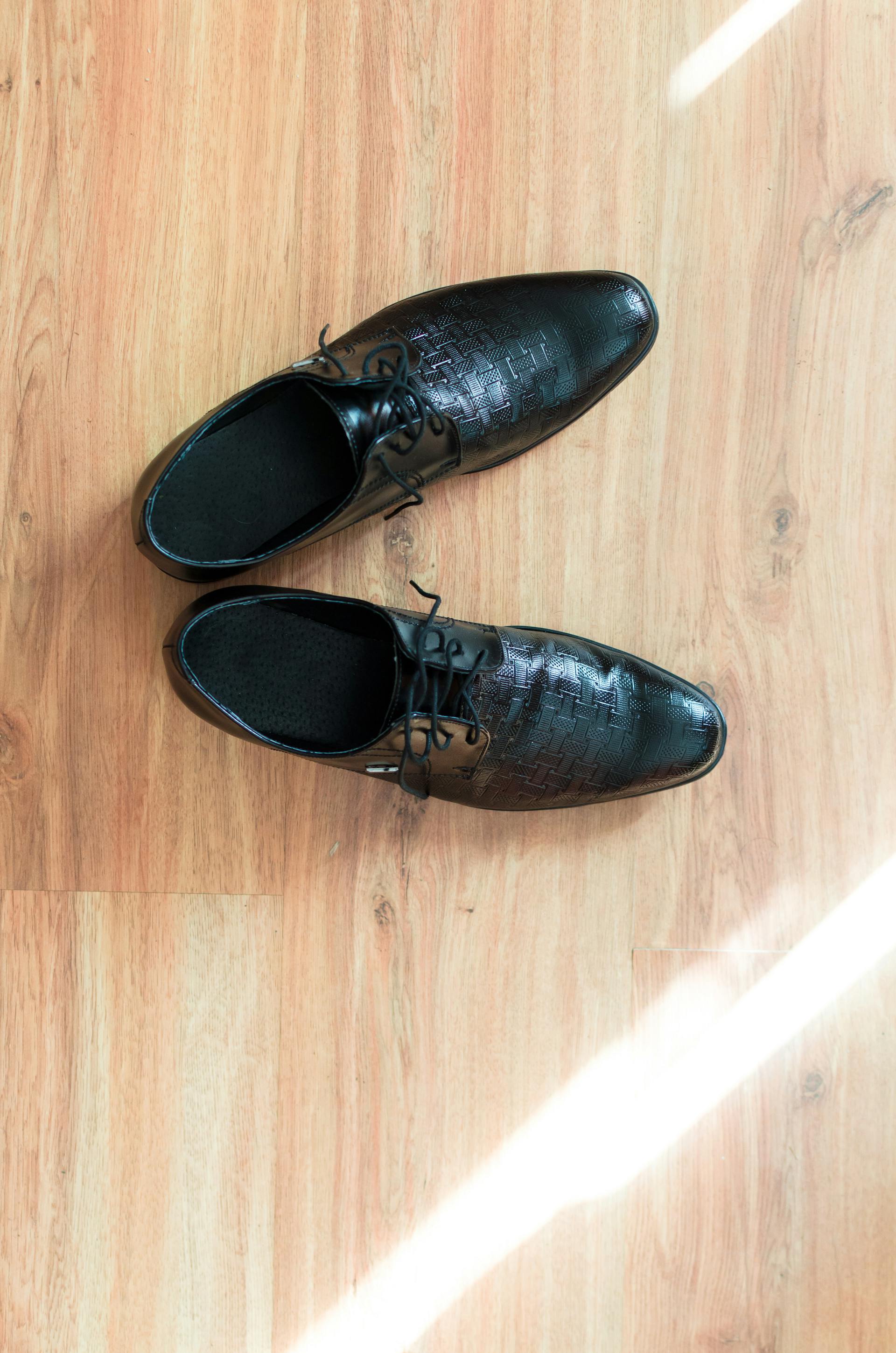
A pair of men’s black leather shoes | Source: Pexels
“They’re comfortable,” he murmured, turning his foot gently.
Before I could answer, Caroline materialized beside us, eyes sharp.
“Sir, please be careful. Those are handcrafted imports,” she said, her tone tight. “They’re quite expensive.”
He looked up at her, completely calm. “Good things usually are.”
The boy beamed and pointed. “You look fancy, Grandpa!”
Madison chuckled softly under her breath. “Yeah, sure.”
Caroline turned toward me, lips pressed thin. “Emily, wrap it up. We have real customers.”
I stood up straighter. “He is a customer.”
Her smile disappeared. “Not the kind who buys.”
The old man stood slowly and brushed off his shorts. He looked at her, not angry, just tired.
“Come on, champ,” he said to the boy. “We’ll go somewhere else.”
The boy frowned, clutching his toy. “But you liked those shoes.”
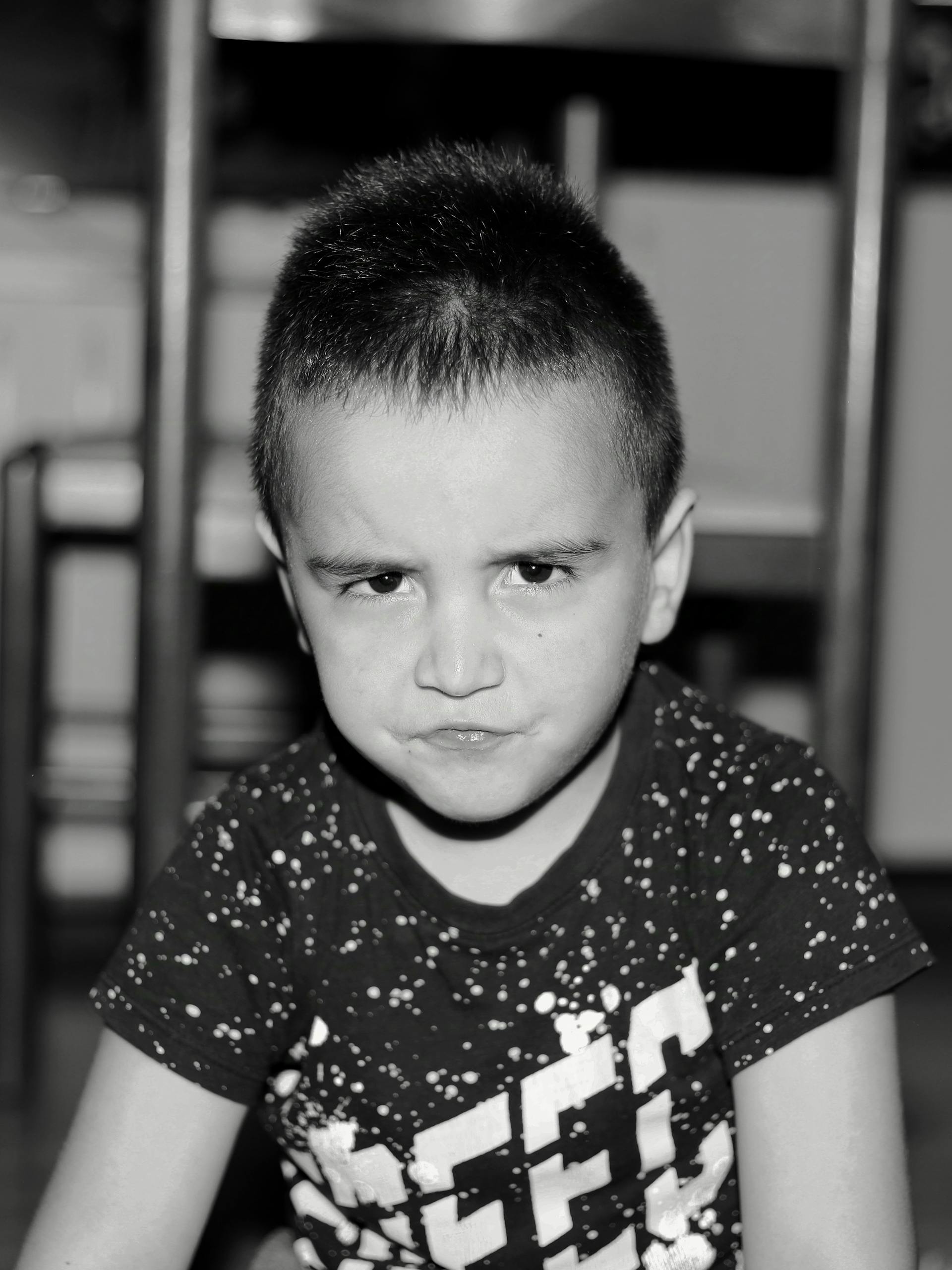
Grayscale photo of a frowning young boy | Source: Pexels
“It’s alright,” the man said, guiding him toward the door. “Some places just don’t see people like us.”
The bell jingled softly as they left, hand in hand.
Caroline exhaled. “Well, that’s over. Emily, next time, don’t waste everyone’s time.”
Madison smirked. “Guess you can’t polish poverty.”
I stared after the old man, my fists clenched at my sides. “You never know who you’re talking to.”
Tessa scoffed. “Sure, maybe he’s the president.”
*****
The next morning, Caroline was a mess.
“Corporate visit today,” she barked as we clocked in. “Smile, look busy, and for God’s sake, no mistakes. Don’t embarrass me, okay?”
By noon, she’d already rearranged the shelves three times and snapped at Madison for chewing gum. We were all on edge.
Then it happened.
A sleek black Mercedes pulled up in front of the store.

A black Mercedes on the road | Source: Pexels
Caroline’s eyes widened. She smoothed down her dress, fixing her hair in the mirror by the register.
“Alright, everyone, posture!” she whispered. “Backs straight, eyes bright!”
The door opened.
And my heart stopped.
It was him.
It was the old man from yesterday, but now he looked like he belonged on the cover of Forbes. His white hair was neatly combed and slicked back. He wore a perfectly tailored navy-blue suit, a crisp shirt, and polished shoes that caught the light with every step. His face was clean-shaven, calm, and unreadable.
Next to him stood the same little boy, now dressed in a tiny blazer and slacks, holding the same red toy truck. He clung to his grandfather’s hand like before, wide-eyed and curious, but noticeably more comfortable in this high-gloss showroom.
Behind them, two sharply dressed men followed, each carrying clipboards and wearing dark suits with subtle earpieces.

A man writing on a paper with a pen | Source: Pexels
I looked at Caroline.
She froze like a mannequin. Her spine went stiff, her lips parted slightly, but no words came out.
Then, finally, she spoke.
“Sir… welcome to Chandler’s,” she stammered, her voice unsteady. “How can we—”
The man looked directly at her, then shifted his gaze past her and looked at me.
A faint smile crossed his face.
“It’s you again,” he said.
For a second, I thought I had imagined it. But the smile was real, and so was the weight of every pair of eyes turning to stare at me.
Madison’s voice sliced through the silence. “Wait. That’s him?”
He gave a small nod. “Yes. Yesterday, I stopped by after spending the morning with my grandson. We’d gone fishing. He loves the water.”
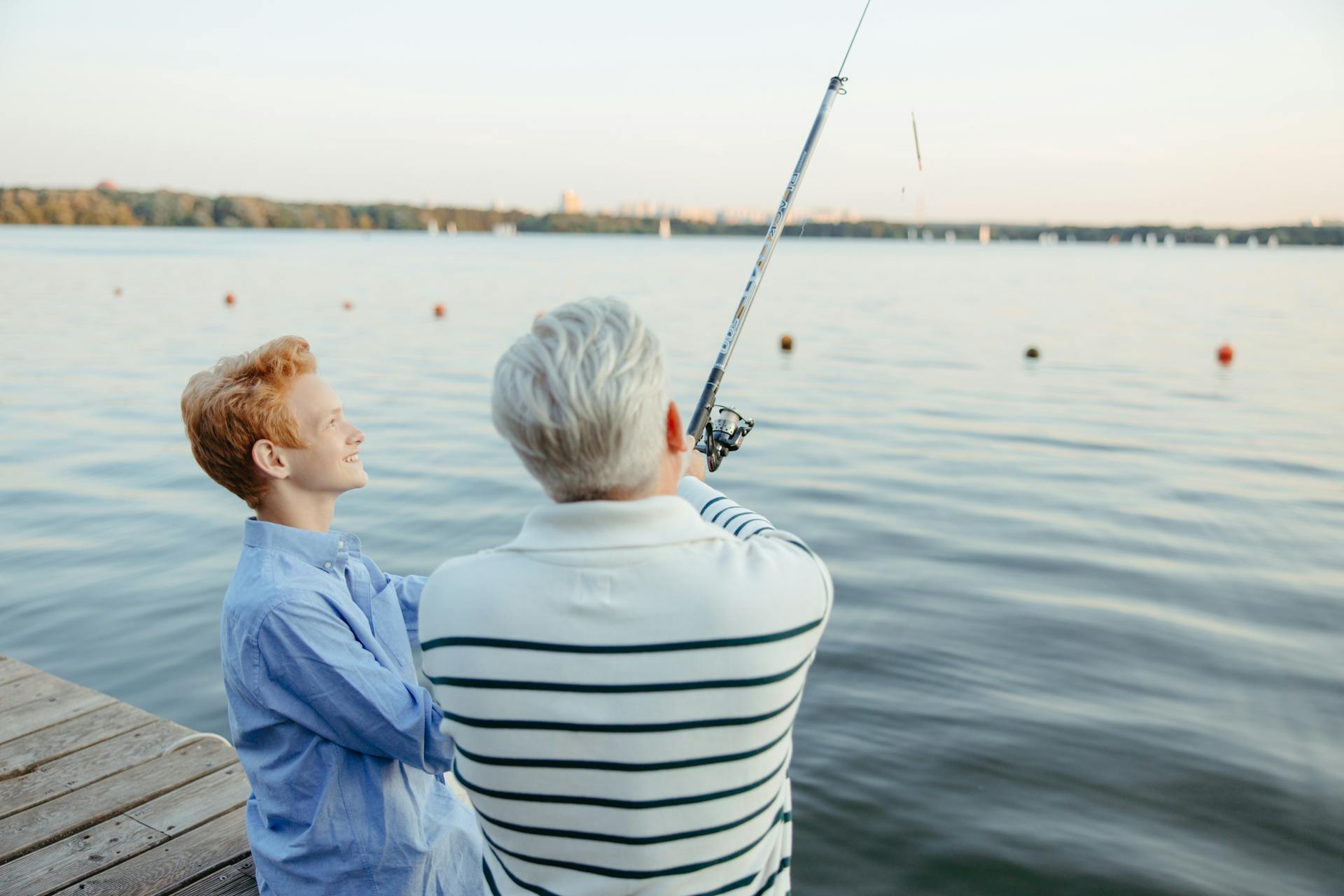
An elderly man and a boy fishing by the dock | Source: Pexels
He turned and gently nudged the boy. The child smiled shyly and nodded.
“We came in for a quick look. I wanted a new pair of shoes for a dinner meeting. What I got instead,” he said, his eyes moving around the store slowly, “was a reminder that expensive doesn’t always mean classy.”
Caroline swallowed hard. “Fishing?” she whispered, barely audible.
The man reached into his jacket pocket and slowly pulled out a black leather wallet. It wasn’t flashy, but it looked expensive, the kind of quiet luxury that only stands out if you know what to look for.
He opened it and held out a card between two fingers.
“I’m Arthur Chandler,” he said, clear and steady. “Owner and founder of this company.”
The silence in the store was instant and heavy, like someone had shut off all the air. It was as if time paused. I swear I could hear Madison’s bracelet clink against her wrist as her hand dropped.
Madison’s jaw fell open. “You’re Mr. Chandler?”

A shocked young woman | Source: Pexels
He nodded once. “The same man you laughed at.”
Then his eyes landed on Caroline. “Yesterday, you told me these shoes were too expensive for me. Then you told your employee to ignore me because I ‘didn’t look the part.'”
Caroline’s mouth opened, but no words came out. Finally, her voice cracked. “Sir, I… I had no idea—”
“That’s the problem,” he said. “You shouldn’t have to know someone’s name to treat them like a person.”
I felt his eyes on me again. My hands were shaking slightly.
“But she did.”
I blinked. “I just… thought you deserved help.”
Arthur gave me the kind of smile that reaches the eyes. “And that’s all I needed to know.”
He turned back to Caroline, who now looked like she was trying not to pass out.
“You’re dismissed. Effective immediately.”
Her hand flew to her chest. “Sir, please—”
He raised a hand. “No. I built this company on service, not snobbery. And I meant it.”

An elderly man in a navy suit looking at someone | Source: Pexels
His words were quiet but cut like a blade.
Then he turned toward Madison and Tessa, who were standing like statues.
And you two,” he said, pausing. “You might consider other industries. Somewhere your attitudes fit better.”
Neither of them spoke. Tessa looked like she was trying not to cry. Madison actually turned pale. Her lip trembled for half a second before she looked away.
Then Arthur looked back at me.
“Emily,” he said, “how long have you been with us?”
“Three months,” I answered, barely above a whisper.
He smiled again, this time warmer.
“Would you like to stay longer?”
I nodded quickly. “Yes, sir.”
My heart felt like it might explode. My voice wavered just a little. “Very much.”
“Good,” he said. “You’re the new assistant manager.”
I blinked. “Sir, what?”

A surprised young woman | Source: Pexels
“You earned it,” he replied simply. “Compassion is the best qualification there is.”
The little boy let go of his grandfather’s hand and tugged gently at my sleeve.
“See, Grandpa?” he said, beaming. “I told you she was nice.”
Arthur chuckled softly and placed a hand on his grandson’s shoulder.
“You did, buddy. You did.”
As they turned to leave, I glanced at the counter where Caroline had been standing. She was frozen in place, tears silently streaking her mascara down both cheeks. Her perfect poise was shattered.
Madison leaned closer to Tessa and whispered, “I think I’m going to throw up.”
Neither of them moved. The silence they left behind felt louder than anything.
I just stood there, staring at the door that had closed behind Mr. Chandler and his grandson, unsure whether to sit down or scream into a pillow.
Then I noticed something.
The tip jar.
It was full, bursting actually, and sitting right at the edge of the register.
Inside, folded neatly on top of a crisp $500 bill, was a small note.
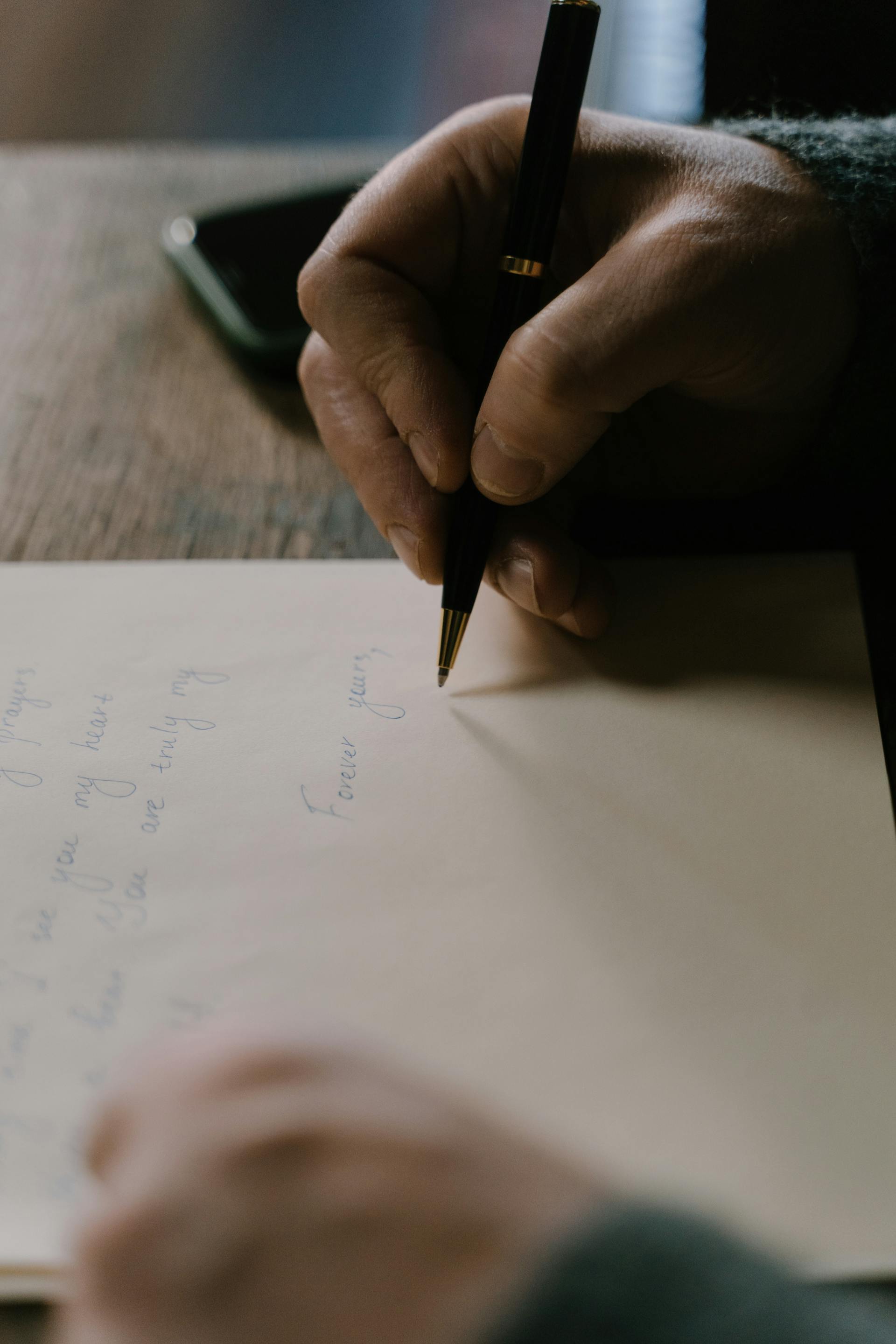
Close-up shot of a man writing a letter | Source: Pexels
I picked it up, my hands still unsteady. It read:
“For the only person in the room who remembered what kindness looks like.
— A.C.”
I just stared at it for a while. I didn’t cry. Not yet. But my chest felt like it was holding back a whole storm.
That night, I couldn’t sleep.
I lay awake, staring at the ceiling, that note still echoing in my mind. I kept thinking about how easy it is to mistake kindness for weakness, how often people confuse humility with insignificance. And how just one small moment, one simple choice to be kind when no one else is, can change everything.

A young woman lying down on the floor while resting her head against the sofa | Source: Pexels
*****
A week later, I started my new role.
My name badge was updated. I got to train new hires and organize the showroom. I even got to toss out that stupid rule about judging customers by appearance.
But my favorite part?
Arthur stopped by sometimes. Usually unannounced. Always with his grandson.
He’d step through the door in a fishing hat, a faded polo shirt, and, of course, flip-flops.
I’d grin the second I saw him.
“Fishing trip today?” I’d ask, folding my arms.
“Hope no one minds the flip-flops,” he’d reply, winking.
“As long as you let me sell you another pair after,” I’d say, pretending to be serious.

A young woman with eyes wide open looking at the camera | Source: Pexels
He’d laugh. “Deal.”
He always kept his word, too. I had a drawer in the back just for his shoes, the ones he would buy and donate later. He once told me he didn’t need more than a few pairs, but buying them gave him an excuse to visit.
He told me that he wanted people to remember that kindness matters more than wealth, more than image, more than rules.
And I did remember. Every day.
There is so much I could say about that day, about what it taught me and how it changed the way I see the world. But at its core, it all comes down to one truth. The real kind of rich is not about money. It is about character. It is about grace, humility, and how we treat people when there is nothing to gain.
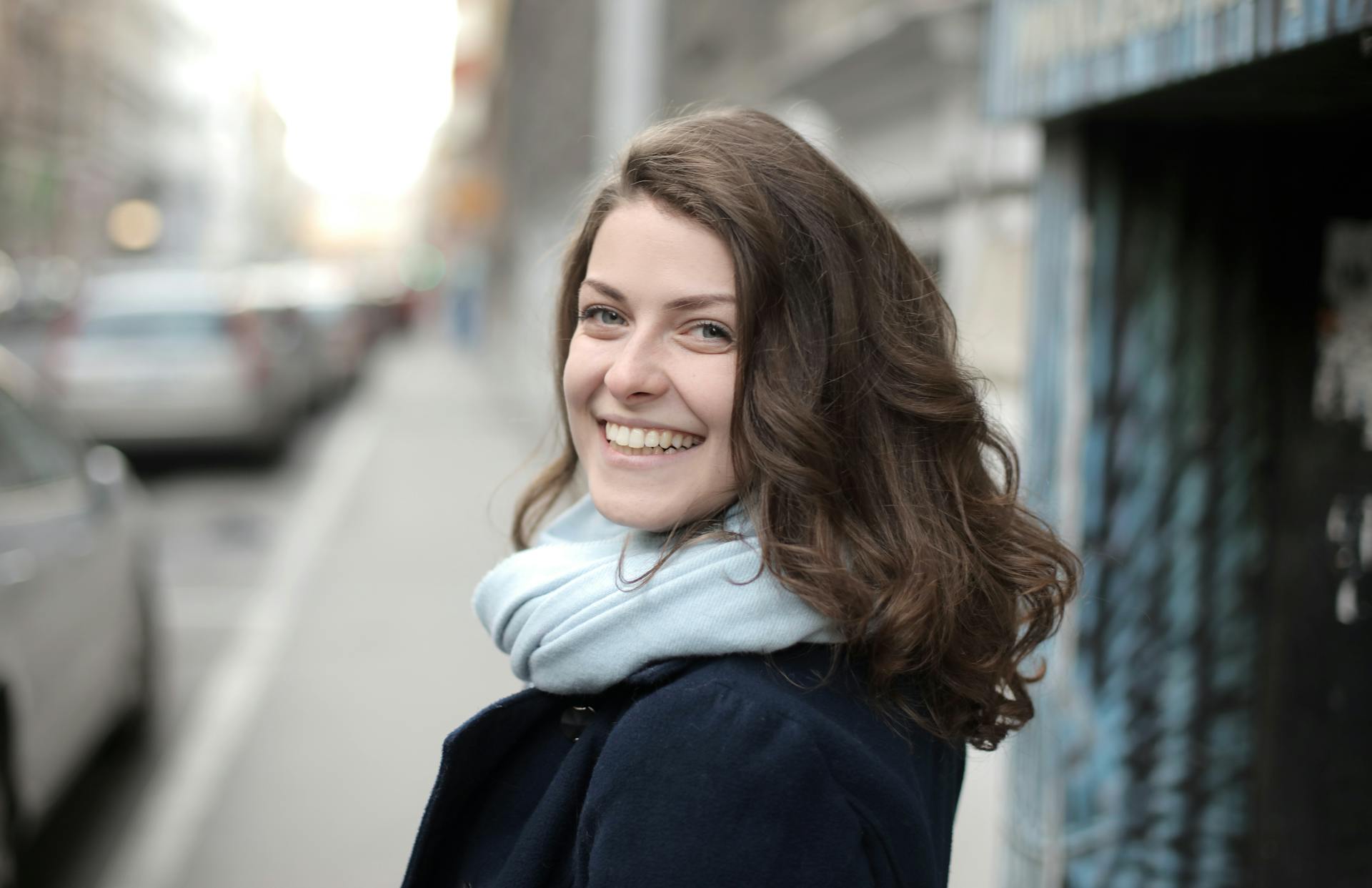
A young woman smiling | Source: Pexels
That afternoon did more than shift my career. It opened my eyes. It reminded me that small moments matter, especially the quiet ones when no one is watching and no one expects anything from you.
Kindness is not weakness. It is strength. And how you treat others in those quiet, ordinary moments says everything about the kind of person you are.
If you liked this story, here’s another one for you: When Monica steps in to help a stranger at the grocery store, she expects nothing more than a grateful smile. But what begins as a simple act of kindness quietly unravels the life she thought she’d settle for, and offers her a second chance she never saw coming.
